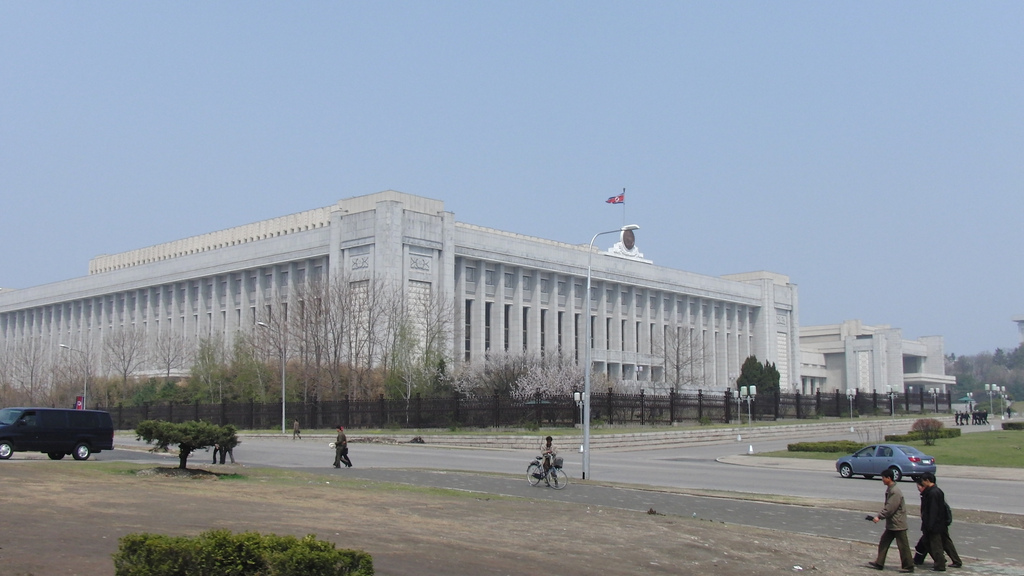The Peninsula
Speculation Remains After North Korea’s Supreme People’s Assembly Fails to Announce Economic Reforms

By Nicholas Hamisevicz
Initial KCNA and other reports about the September 25, 2012 Supreme People’s Assembly (SPA) meeting indicate North Korea has made no public announcement on economic or agricultural reforms as anticipated by numerous press articles and North Korea watchers. Proclamations following the meeting emphasized changes to North Korea’s education system. Thus, those that were hoping to add some statements on economic changes from the SPA to previous indications of North Korea trying to reform will be left with speculation and waiting to see if North Korea will really attempt the reforms needed to change its situation.
Leading up to the meeting, there were many articles predicting economic reforms would take place. Some suggestions were that farm units would now be able to keep more of their yield, a size reduction of those farm units, and possible changes to market mechanism laws in the Special Economic Zones. However, only changes to North Korea’s educational programs were reported as outcomes of the SPA.
Theoretically, members of the Supreme People’s Assembly could have discussed economic reforms or adjustments and just not have placed those conversations in KCNA. Previous reforms were not delivered through the press. The North Korean leadership probably wants to leave itself some flexibility with reform implementation. Furthermore, some experts suggest that North Korea has already undertaken some of the reforms predicted for public announcement, like reducing the number of people that make up a collective farm unit. If North Korea has already started the reforms, then the government might feel that it is unnecessary to announce them, and the SPA could just talk about the early stages of those programs. A final possibility suggested for the lack of announcement on economic adjustments could be a desire by the North Korean leadership to keep instructions on new policies within the Korean Worker’s Party, and have those policies be passed down through the party to the people’s and cooperative farms’ committees. If so, this would be another indication that outside analysts would only learn about the implementation of the reforms from those inside North Korea or reports from defectors.
Yet no public announcement could leave the North Korean people unsure of Pyongyang’s actual support for the various reform measures, which would create an environment where new policies are not fully implemented because of the uncertainty of backing from the top. Moreover, no public press on these adjustments reduces the entry points for help and engagement from the outside world. Plus, statements on reforms are signposts for outside nations to determine North Korea’s willingness to change.
So without any announcement for the anticipated economic changes, the reports from the Supreme People’s Assembly were centered on education reform. North Korea will now try to increase compulsory education from 11 to 12 years. The policies pushed for increases in the budget for education, more electricity and power for schools, and better materials for students.
While improving the education system helps provide a more qualified workforce for an economy in the future, these initial announcements from the Supreme People’s Assembly were disappointing for those looking for statements to include references to economic reform. Analysts will still have to work with statements from defectors, anecdotes from those visiting North Korea, and stories from those governments that have diplomatic relations with Pyongyang to decipher if changes are actually taking place. Secrecy may help the North Korean government control and monitor the unannounced reforms, but it will not increase the confidence of a skeptical outside world waiting to see if these reforms will be any different from previous attempts.
Nicholas Hamisevicz is the Director of Research and Academic Affairs for the Korea Economic Institute. The views represented here are his own.
Photo from comradeanatolii’s photo stream on flickr Creative Commons.
